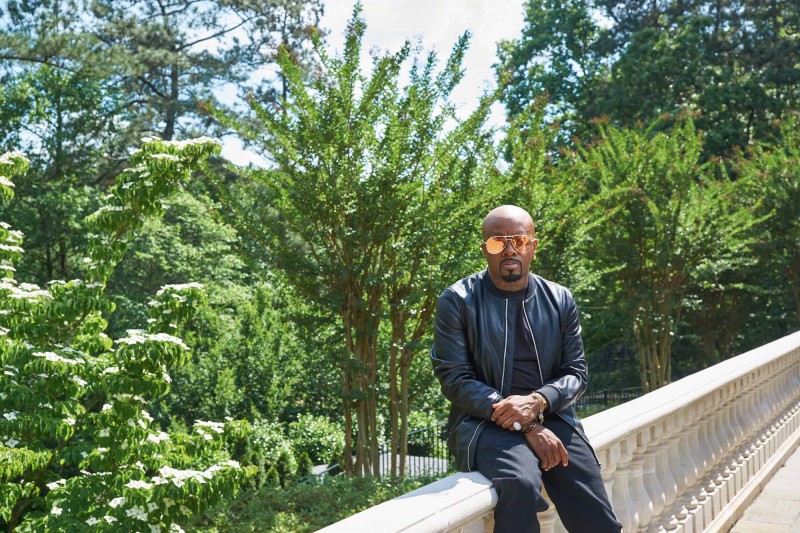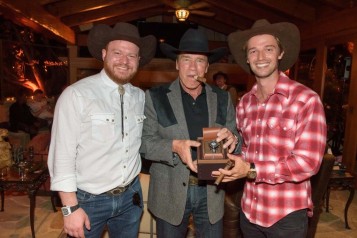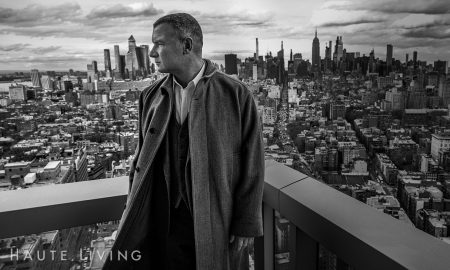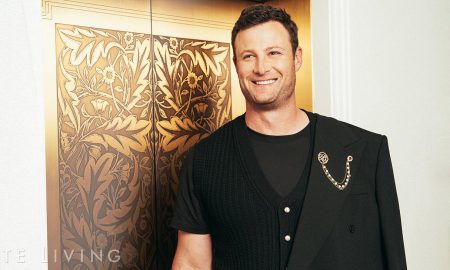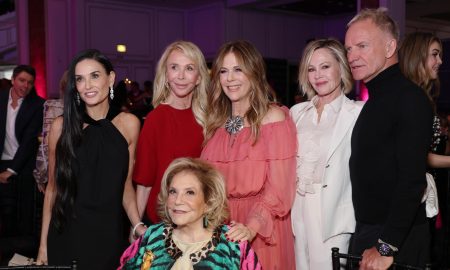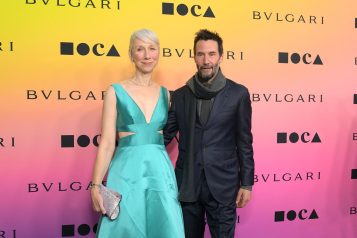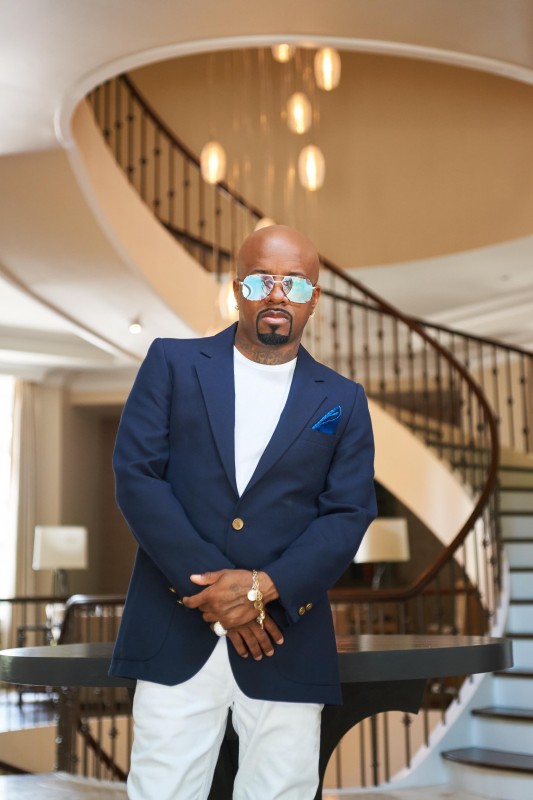 Photo Credit: Reginald E. Weekes IV
Photo Credit: Reginald E. Weekes IV
Photography: Reginald E. Weekes IV
Grooming: Korey the Barber
Makeup: Zoe Simone
Stylist: Renaldo Nehemiah
Jermaine Dupri is a music legend. The talented producer who sprung from the depths of the Atlanta music scene is leaving an indelible mark in hip-hop and R&B, branding his music with that undeniable Southern funk, identifiable even two decades since his iconic label, So So Def Recordings, was born.
His career has been nothing short of stellar, working alongside some of the world’s biggest artists. From the Kris Kross craze to Usher having it his way, and who can forget Mariah’s “We Belong Together”? Dupri’s production roster includes names like Jay-Z, TLC, Ludacris, Alicia Keys, Destiny’s Child and Janet Jackson―and he isn’t done yet. On June 14th, along with Bill Anderson, Robert “Kool” Bell, Ronald Bell, George Brown & James “J.T.” Taylor (aka Kool and The Gang), Steve Dorff, Alan Jackson, John Mellencamp and Allee Willis, he will receive the honor of being inducted into the Songwriters Hall of Fame. Here, he sits with Haute Living and discusses what he’s afraid of, his biggest career lessons and what he is most proud of.
It’s a huge year for you, with the 25th anniversary So So Def, the 20th anniversary of your song with Jay-Z, “Money Ain’t a Thang,” and your induction into the Songwriters Hall of Fame. Would you say this is the most defining moment of your career?
No, I wouldn’t say that. It’s a scary moment, probably the scariest moment in my life. I feel like when music people start looking at you when you get these kind of awards and records start having anniversaries, people start counting you out. I feel like now is my busiest time to make sure that I perform at the level that all of this is happening at. I don’t know many people that get to this point and are still in the mix as I am. I follow a lot people, like when Berry Gordy did Motown 25, I’m not sure that he was as active in the music business and in the culture as much as I am. It feels exciting. I don’t want to take away from the magnitude of that this is, but at the same time, I’ve always been the kind of person that no matter what height of success I achieved, I want to be present to what happens after that success.
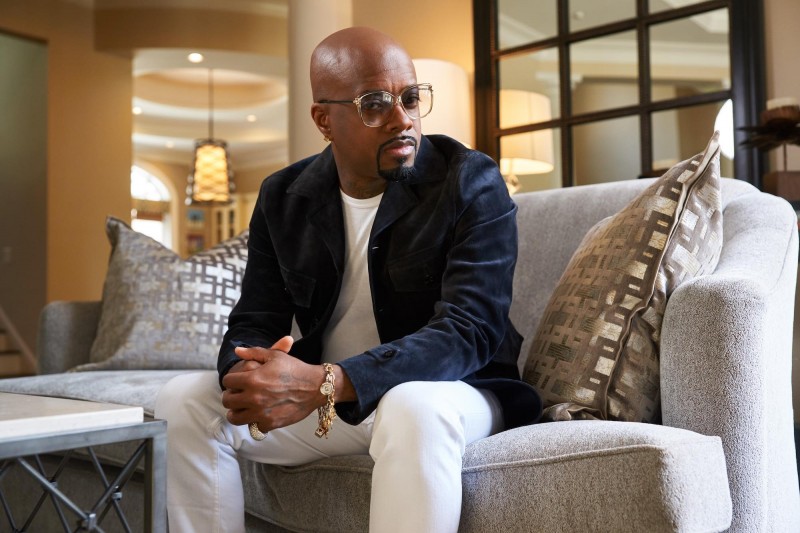 Photo Credit: Reginald E. Weekes IV
Photo Credit: Reginald E. Weekes IV
What would you say is your most nostalgic moment in all of your years?
My Kris Kross moment was every bit of that. I believe as much success as I have had, none of them equal to that because the story behind them and how it came about. Every other artist that came after, came because what they saw me do with Kris Kross. They didn’t know anything about Jermaine Dupri, I wasn’t the Jermaine Dupri that I became. I was just a producer that was known around Atlanta for trying to get into the music business, but I wasn’t really known. Their mom knew who I was because she saw me in Jet magazine. Every question I asked was a no. They didn’t rap, they were not entertainers. I was blown away. I asked them for their number and they asked, “For what?” I didn’t have a label at that time. I told them, “You guys should make a record.” And they said, “We don’t rap.” At the time, I didn’t really have all the answers, but I knew that they were special. In my mode of trying to be an entrepreneur and figure this out in the middle of the mall and get them to believe in me happened in that moment. For two years we just hung out, and it took me that long to get them to the Kris Kross you know. In the process, I realized that they weren’t rappers, but they would rap along to every other lyric on the radio. I thought, if I write them a song that’s cool enough that they like, they will rap it just like me. So, then I started getting in that mindset of how to write a song for someone else. There are many things that I taught myself in the process to bring Kris Kross out that made this project unlike any other that came after. Their first album sold eight million records.
What is your proudest piece of work?
I have a few. I think “We Belong Together” with Maria Carey is one. I think the Usher My Way album is another. Xscape’s first album―it was the first record that I put out on So So Def. Coming from a rap album that sold eight million records, and had a double-platinum single in rap music, I wanted to prove to the world that I could also produce R&B and be known as a producer as a whole, not just in rap. When I came out with Kris Kross, people were like, “What are you doing? You don’t know anything about rap music.” And when I came out with Xscape, they criticized me for not knowing anything about R&B. And then when Xscape hit, people were left with nothing to say. So then it became, “Okay, well, do it again.” I speak about Usher because it was a real defining moment with Usher’s career. LaFace was going to drop Usher before the My Way album because his first album did okay, but its success wasn’t what L.A. Reid wanted and they had a lot of male artists at the time. And with Usher, L.A. didn’t really know what to do with him because he was going through puberty, and his voice was changing. They felt like they had lost the kid they had signed. I didn’t know any of this at the time. That record exceeded the expectations that LaFace thought about Usher. Successes like that made me realize that all of this is heaven sent; this is something that God put in me to do. Because when opportunities like this happen, where I come in and help people’s lives to continue and go in the right direction, I never set out to do that, that’s not something I go into the studio to do, and I wouldn’t put that kind of pressure on myself. That happened with Usher and Mariah Carey. Mariah had just had a breakdown on TRL―people had counted her out, and the album didn’t do so well. I remember when I would tell people I was getting ready to work with Mariah, there was no excitement, and this was so sad to me because she is one of the biggest artists in the world. At the time when I worked with her she was the biggest female artist, and she is still the biggest-selling female artist in the world today. But I realized how sad and disrespectful this industry is off of her career.
People had praised her, how big she got, all the No. 1 records she had―that s*** didn’t matter after one situation on TV where she went on acting erratic, and people tried to erase her whole career based on two minutes on live TV. When I went into the studio with her I didn’t go in with the intention on changing people’s mind about her and putting people back in their place. So for me, this is all very much driven by God. We went in the studio and I told her what to do and what she needed to do that she hadn’t done in previous songs. She listened to me. We never argued. She never gave me any diva moments. She actually pushed me to do more for her. I stayed up late at night with her, and the song of the decade came out of it, “We Belong Together.”
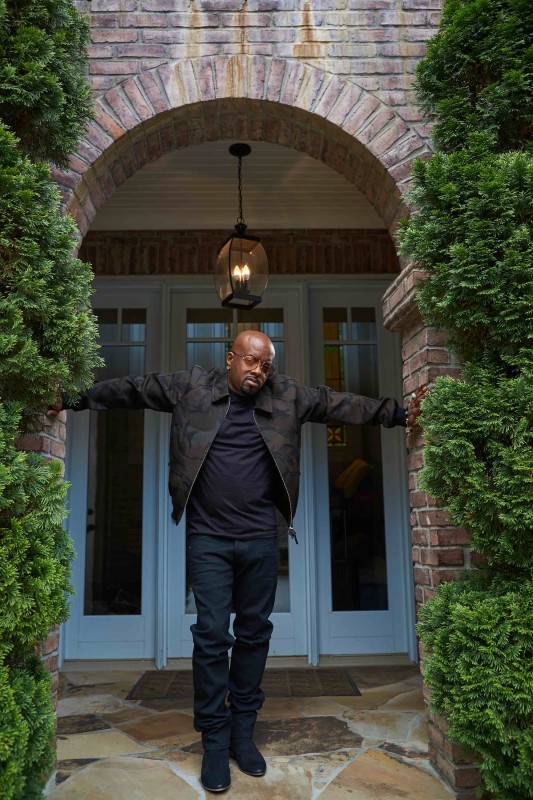 Photo Credit: Reginald E. Weekes IV
Photo Credit: Reginald E. Weekes IV
Who has been the biggest influence on your songwriting?
Teddy Riley has been my biggest influence. He always puts the right elements into his music. Dope verses and the beat―no matter what song he ever did, you could take the lyrics off the song and let the beat rock by itself. I caught myself so many times trying to do that and get mad at myself because I couldn’t do it because what he did, I couldn’t. I ended up finding my own way. I could never figure out what Teddy did, whether it was a ballad or an up-tempo record, the beat for him was always on point. For me, when I started doing ballads, they took me in a different direction. I feel like my music started battling with Jimmy Jam, Terry Lewis and Babyface as opposed to what I set out to be―I wanted to be like Teddy Riley. I talked to him a lot, and I don’t think he understands how much I really idolized him.
What is the most personal song you have ever written?
It’s between “You Make Wanna” and “Confessions” [Usher]. They both were real pages out of my life. “Confessions 2” was my story of having a girlfriend and getting another girl pregnant and having to deal with the baby coming―and being confronted with having to tell your girlfriend that you have a baby on the way with a girl I barely knew. All of the lyrics were true. I had a girlfriend I had spent eight years. It was a tough situation. I know society looks at you like you cheated, you’re a scumbag―it was a huge lesson. One thing I learned about men and women―women in general in this situation, is when a woman is hurt she won’t walk away until she knows all the answers. When I finally worked the nerve to tell my girlfriend the situation, I coached myself to get it over with in as a little time as possible. What I thought would be seven-minute conversation turned into a 4-hour discussion.
That was such a huge song for Usher when it was released, his emotion in singing that song was so raw and authentic―to know that it was your story takes the song to a new level.
Usher became me in the process of that song, and he acted out every emotion and every bit of pain and seriousness and all of what I was giving him, he brought it to life like no other. That’s why this Songwriters Hall of Fame induction for me is probably the biggest award that I can receive in life because I’m a songwriter. That’s what I do, and that is nature of what I do and that’s how I came into this game. It’s all come full circle because that’s how I started―writing.
What advice would you give to young Jermaine Dupri 25 years ago?
To not think about making other people happy. In this industry, no matter who you are, what you are and what you do, people only like you and love you as long as you do and stay in box that they placed you in. It’s not a real love industry. Yesterday, I read that Spotify pulled all of R. Kelly’s music―the sad part about that is that the R. Kelly and Spotify relationship has nothing to do with his personal life. He is a musician, and their site is a musical site. You don’t go to Spotify to learn about a person. You go to Spotify to listen to music. No matter how big you are, no matter what you do, no matter where you go, no matter how many things you accomplish―love is not going to be what you think it is. It’s fake love, and it will be fake love for the longest. We saw it with Michael Jackson―these are some of the biggest artists in the world, and I have heard people say the worst things possible about them. At some point in my life, I started trying to appease executives, started trying to do things to make executives happy and to try to be in the mix with certain executives because I thought it would make my life better, and none of that s**t matters. Make sure you are happy because that is what matters in the end.
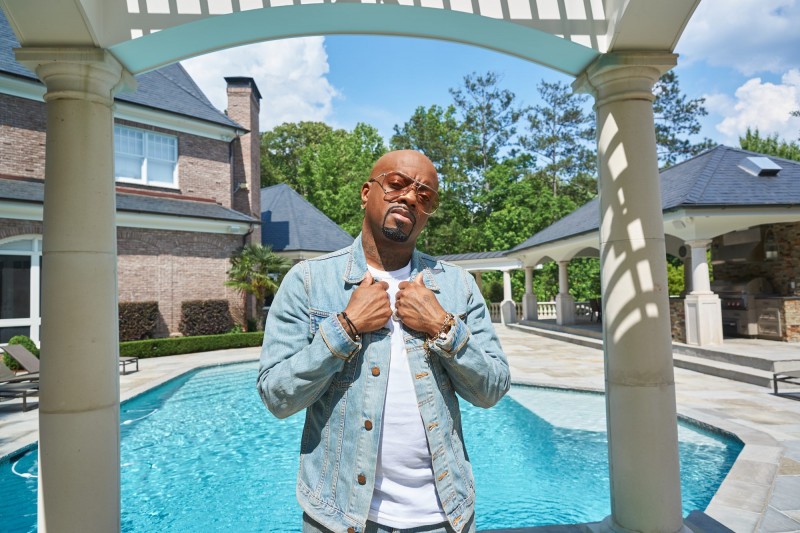 Photo Credit: Reginald E. Weekes IV
Photo Credit: Reginald E. Weekes IV
Are there things that you wish you had done differently?
At one point in my career I got cocky, and I started believing that people liked me so much that I could do whatever the f*** I wanted to. That’s the worst thing you can do. Doing whatever you want to do is all bad. When people say, “I could do whatever the f**k I want to do, I run my own s***,” that’s the worst space you can go to in this business because the things that happen in that circle of you doing whatever you want to do, you feeling like you are the boss and can’t no one tell you nothing. All that does is make the people watching you remember that they don’t really care about you to begin with―you are just cranking that juice up for them to really show you exactly how they really feel about you. I was so young that nobody told me this, so I had to learn this all on my own. So, if I got the opportunity to tell myself or show myself, I would never get cocky about any success or accolades that I achieved.
“Welcome to Atlanta” is your theme song. We loved the one you did for the (NFL’s) Falcons, but what is a new verse off the top of your head for “Welcome to Atlanta,” 2018 version?
No, you know what’s crazy about that is that I feel slightly disrespected when people ask me to create a new version of my song. Did anybody ask Frank Sinatra to make a new version of “New York, New York” after he made it? Did anybody ask Dr. Dre―we need a new version of “California Love”? They put that in the space of what it is. This is a classic record that Dr. Dre and Tupac made. But when it comes to “Welcome to Atlanta,” people are like, “Man, you gotta go in and change the lyrics and put the new people on.” And to me that takes away from the timelessness of it―it takes away from the classic-ness of what that song was created for in the first place. I created that song so people in Atlanta would have a song like people in New York have, like what Frank Sinatra did and what Dre did for California. That song was made so that ATLiens can feel proud to be from here for the rest of their life. For the Super Bowl, my goal is to make people understand or make people feel in Atlanta the way I feel about that song, and how much I feel that song means for this city. It’s also a moment for people to just stop for one moment when the Super Bowl comes and realize that out of all the artists that came from Atlanta―here’s my cocky moment, get ready, here it is―there’s only one guy in this city that has a theme song for this big, amazing city. There’s only one person that went in the studio and said, “I’m gonna make a song about the city that I live in because I feel this city is so amazing.” And this is the theme song of this city, f*** everything else.
As you approach this historical event, what are you looking forward to in the future? What is your next goal?
When you get to this point, you start thinking about your legacy. Protecting your legacy.







